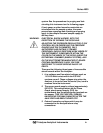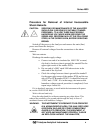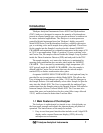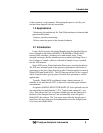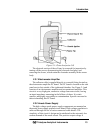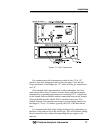
Introduction
Teledyne Analytical Instruments 12
The anode-igniter, as its name implies, serves two functions. When
relay K2 at PCB part number B74671 is energized, the coil becomes an
electrical heating element that glows red-hot and ignites the hydrogen
fuel. When relay K2 at B74671 is de-energized, the coil is connected to
the +260 volt DC terminal of the anode-flame guard power supply PC
board. In this configuration, the necessary potential difference is
established between the coil (anode) and collector to promote ionization
of the burned hydrocarbons. The coil functions as the high voltage anode
in all three-range positions of the selector switch.
The thermistor acts as the sensor in the flame guard circuit. Its
ambient temperature resistance is in the 100 K ohms region. When the
flame is ignited, its resistance is reduced by a factor of 100. The
thermistor is coupled to a semiconductor control circuit on the anode-
flame guard power supply PC board, which will be described in a
following section.
The cell electrodes of both the anode-igniter and flame guard
thermistor are connected to the electronics chassis by means of a plug-in
cable.



